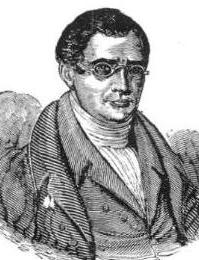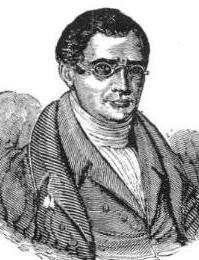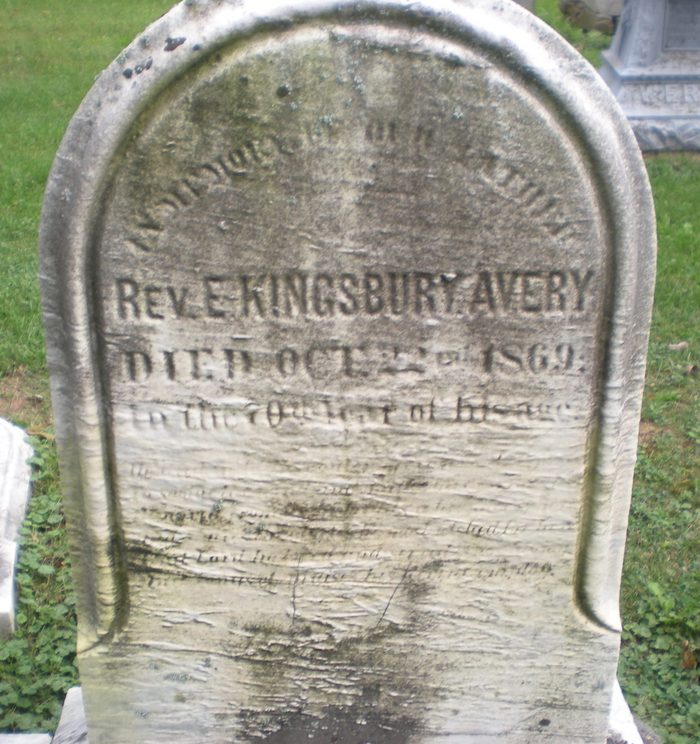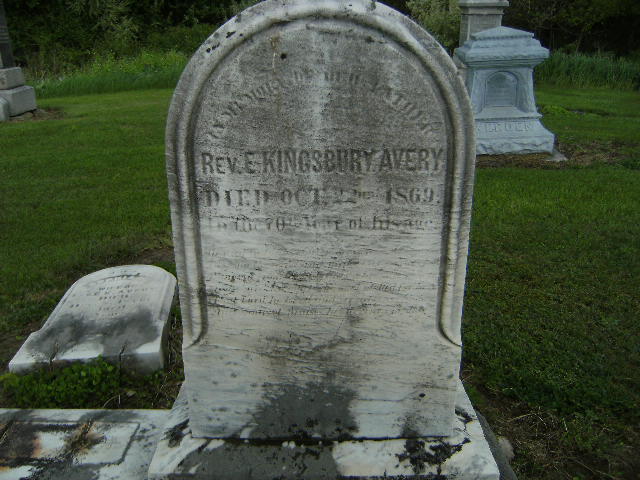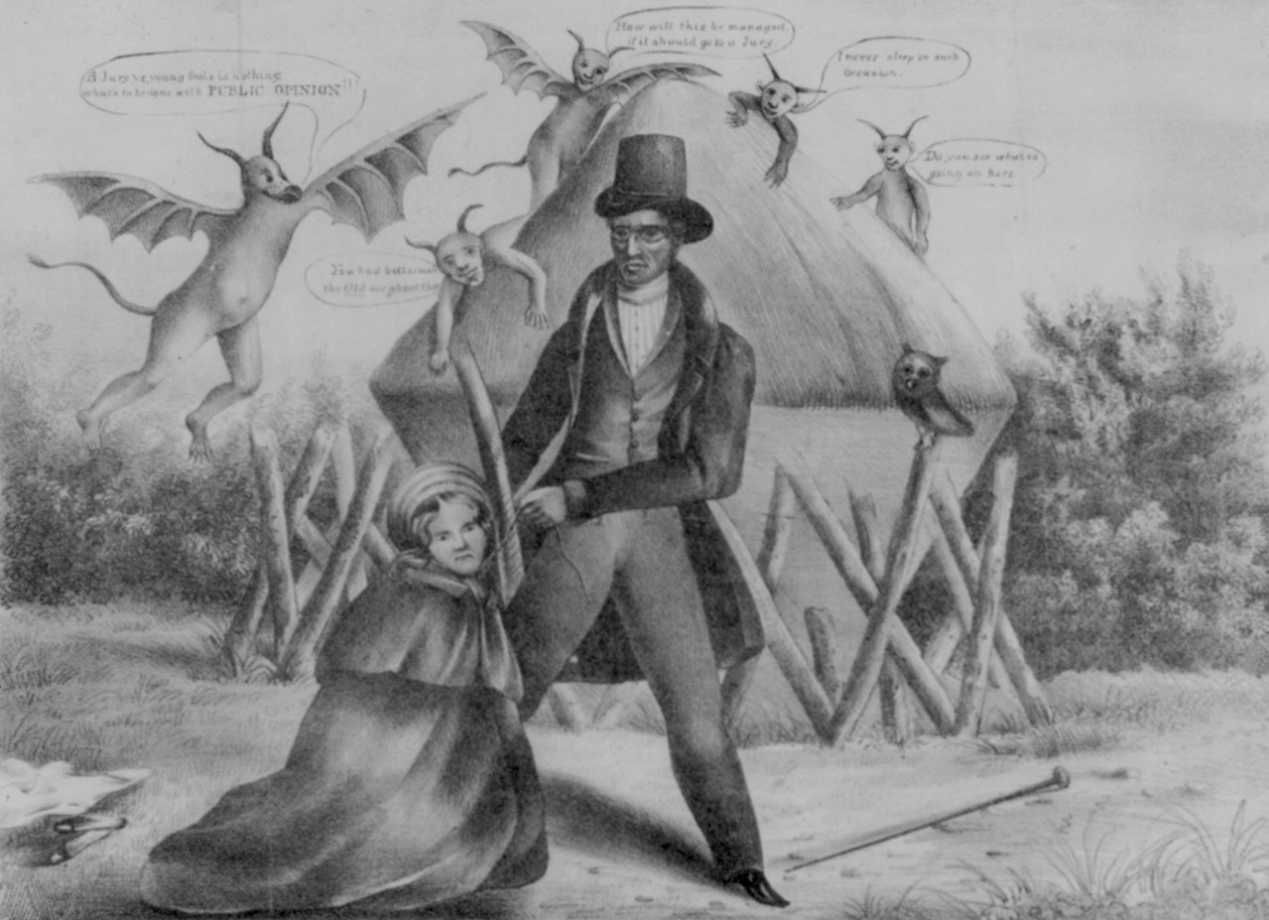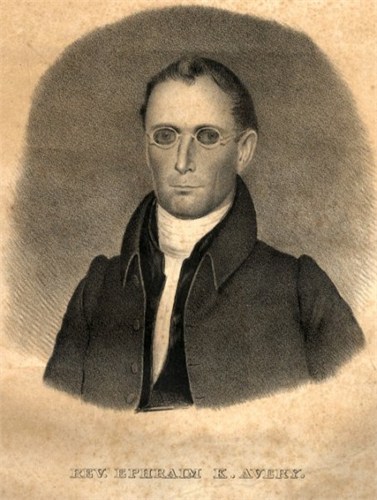First minister in America to be tried for murder. While working as a pastor in Bristol, Rhode Island he was acquitted of killing textile mill worker Sarah Maria Cornell in a nationally famous 1833 trial. On December 21, 1832, John Durfee discovered Cornell's body tied by a cord around her neck to a haystack pole on his farm in Tiverton, Rhode Island. A local Methodist minister identified her as Sarah Maria Cornell, a Fall River, Massachusetts factory worker who had been in Tiverton for only a few months and attended his church. An Investigation revealed that she was pregnant and her body possibly bore signs of an unsuccessful abortion attempt. Letters in her trunk suggested that Avery, the minister of the church she attended when they both lived in Lowell, was the father. The local jury called by the coroner initially ruled death a suicide, but the determination was later changed to homicide after a second search of Cornell's effects produced the December 20 note indicating that Avery should be questioned if anything happened to her. Authorities went to Bristol to arrest him, but the local Justices of the Peace refused to extradite him. He left town and went into hiding in New Hampshire. A committee of Fall River citizens located him, arrested him and returned him to Rhode Island. The prosecution presented circumstantial evidence connecting him to the crime, but his lawyers succeeded in making the victim's character an issue, including charges of lewd behavior, shoplifting, previous dismissals from Methodist congregations for unbecoming conduct, and possible treatment for venereal disease. The Methodist church also dismissed claims of murder and adultery, allowing Avery to remain a minister. After his acquittal he mounted a speaking tour to vindicate himself but it was unsuccessful. He moved to Connecticut, then to upstate New York. He later resigned from the ministry, moved to Ohio, and became a farmer. He authored a memoir of the trial, "The Correct, Full and Impartial Report of the Trial of Rev. Ephraim K. Avery."
Son of Amos Avery Jr (1757-1837) and Abigail (Loomis) Avery (1761-1836).
His paternal grandparents were Amos Avery and Irene (Kingsbury) Avery.
His maternal grandparents were Daniel Loomis and Mary (Sprague) Loomis.
He married Sophia Wells, and their children included Edwin (died young), Edwin, Catharine, Maria, Francis, and Josephine.
First minister in America to be tried for murder. While working as a pastor in Bristol, Rhode Island he was acquitted of killing textile mill worker Sarah Maria Cornell in a nationally famous 1833 trial. On December 21, 1832, John Durfee discovered Cornell's body tied by a cord around her neck to a haystack pole on his farm in Tiverton, Rhode Island. A local Methodist minister identified her as Sarah Maria Cornell, a Fall River, Massachusetts factory worker who had been in Tiverton for only a few months and attended his church. An Investigation revealed that she was pregnant and her body possibly bore signs of an unsuccessful abortion attempt. Letters in her trunk suggested that Avery, the minister of the church she attended when they both lived in Lowell, was the father. The local jury called by the coroner initially ruled death a suicide, but the determination was later changed to homicide after a second search of Cornell's effects produced the December 20 note indicating that Avery should be questioned if anything happened to her. Authorities went to Bristol to arrest him, but the local Justices of the Peace refused to extradite him. He left town and went into hiding in New Hampshire. A committee of Fall River citizens located him, arrested him and returned him to Rhode Island. The prosecution presented circumstantial evidence connecting him to the crime, but his lawyers succeeded in making the victim's character an issue, including charges of lewd behavior, shoplifting, previous dismissals from Methodist congregations for unbecoming conduct, and possible treatment for venereal disease. The Methodist church also dismissed claims of murder and adultery, allowing Avery to remain a minister. After his acquittal he mounted a speaking tour to vindicate himself but it was unsuccessful. He moved to Connecticut, then to upstate New York. He later resigned from the ministry, moved to Ohio, and became a farmer. He authored a memoir of the trial, "The Correct, Full and Impartial Report of the Trial of Rev. Ephraim K. Avery."
Son of Amos Avery Jr (1757-1837) and Abigail (Loomis) Avery (1761-1836).
His paternal grandparents were Amos Avery and Irene (Kingsbury) Avery.
His maternal grandparents were Daniel Loomis and Mary (Sprague) Loomis.
He married Sophia Wells, and their children included Edwin (died young), Edwin, Catharine, Maria, Francis, and Josephine.
Family Members
Advertisement
Advertisement
